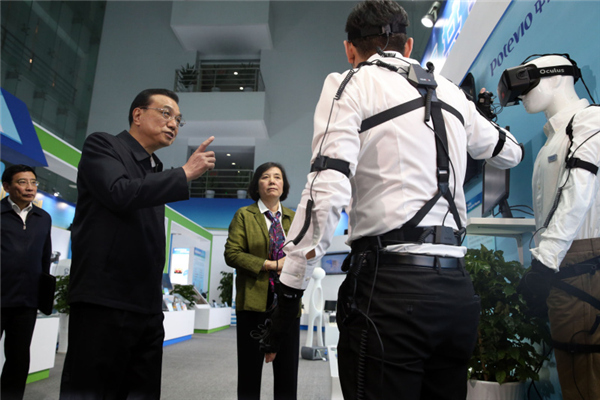
Premier Li Keqiang pressed departments concerned to step up mass entrepreneurship and innovation while presiding over a State Council executive meeting on Sept 6.
To upgrade mass entrepreneurship and innovation, further efforts should be made to broaden its coverage, as well as step up soaring emerging business modes, the Premier said.
China’s economic development mode has shifted from a high-speed growth stage to a quality-oriented one, hence work on mass entrepreneurship and innovation should scale new heights accordingly.
An arrangement in this regard was made at the meeting, aiming at bringing the incentive of mass entrepreneurship and innovation into full play to boost employment, technology innovation, and the development of industries.
According to what was said at the meeting, administration streamlining should be deepened to facilitate business starts and dissolution of companies that go out of business. The employment and social insurance system should be improved for new employment situations.
Meanwhile, improvements should be made to policies and services that support migrant workers and veterans who want to start businesses.
The meeting also pledged more financial and tax support. In the future, individual buyers will be exempted from tax for shares of National Equities Exchange and Quotations bought in the secondary market.
Provincial tech enterprise incubators and university tech parks, as well as eligible maker spaces, will be exempted from property taxes and value added tax.
In addition, the government will support new enterprises with potential to seek financing in the stock market, regardless their current profitability.
To encourage innovation, the nation will conduct pilot work on ownership and long-term right of use on post-research results for researchers, and compensation for risks on loans applied for based on research results.
At the same time, efforts will also be made to innovate credit supervision to ensure enterprises in the sharing economy strictly fulfill their responsibilities.
There are two key sectors that should be prioritized in the process — the industrial internet and Internet Plus public services, Premier Li said.
The industrial internet has been put into practice by an array of forward-looking enterprises and regions, which is a significant path to developed manufacturing with collective wisdom and efforts.
Departments concerned should steer the development of the industrial internet, and align it with intelligent manufacturing and e-commerce, Premier Li said.
As for Internet Plus public services, Premier Li added, importance should be attached to the construction of Internet Plus healthcare and education, to provide people with access to premium resources.
To efficiently upgrade mass entrepreneurship and innovation, it is important to lever the market and society, Premier Li said.
